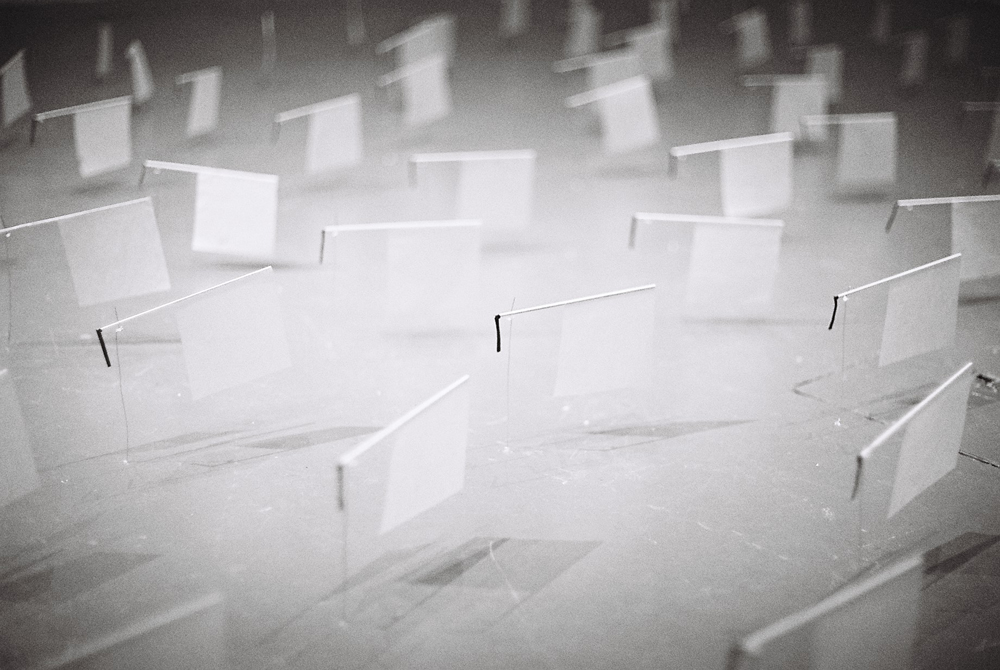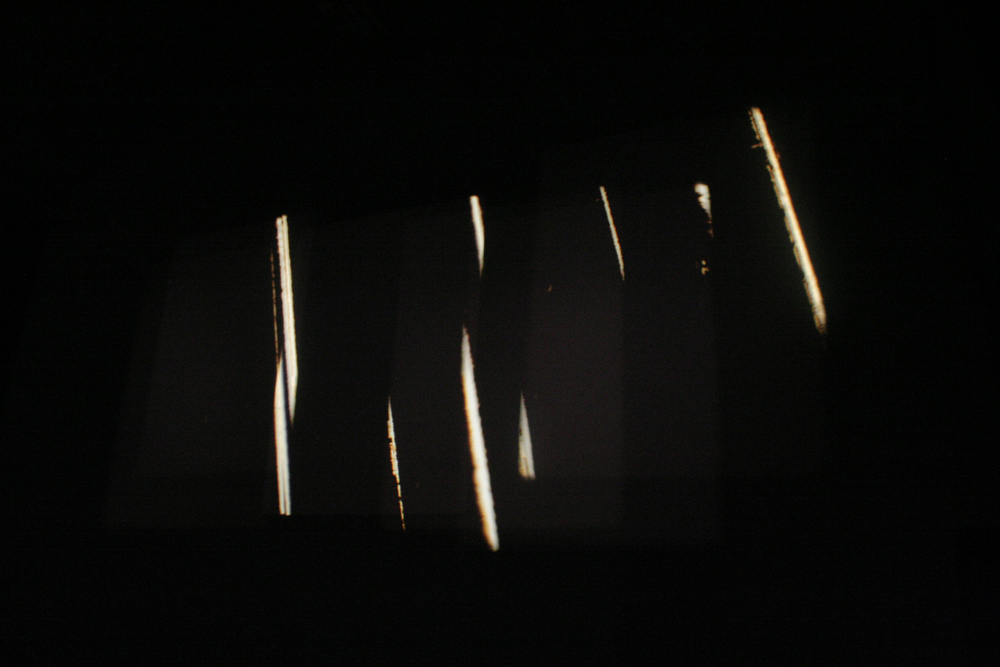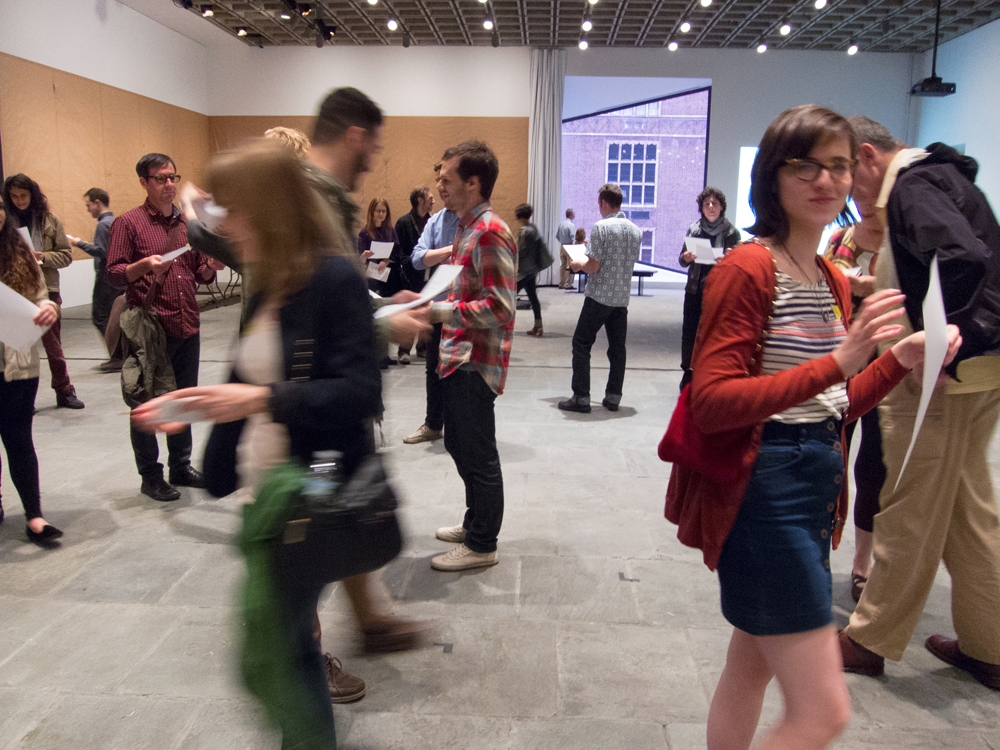
It’s in the Air
Felix Hess is a unique crosser of the boundaries between science and art. He wrote his doctorial thesis on the aerodynamics of the boomerang
Arika have been creating events since 2001. The Archive is space to share the documentation of our work, over 600 events from the past 20 years. Browse the archive by event, artists and collections, explore using theme pairs, or use the index for a comprehensive overview.

Felix Hess is a unique crosser of the boundaries between science and art. He wrote his doctorial thesis on the aerodynamics of the boomerang

Guy Sherwin gives a kind of annotated, chat through his optical sound films

Sometimes delicate, sometimes harsh and jarring, Yagi’s koto solos are as much inspired by Nancarrow or Cage as they are traditional.

Tormented and drawn-out high-pitched yelps and drones, all interleaved with periods of torpid silence.

A silent performance of (musical) reverberation.

Quasi-theatrical multiple-projector pieces play with the relationship between performers, art and audiences.

A simple hands on workshop with micro-radio theorist and pioneer Kogawa.